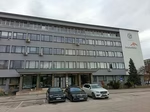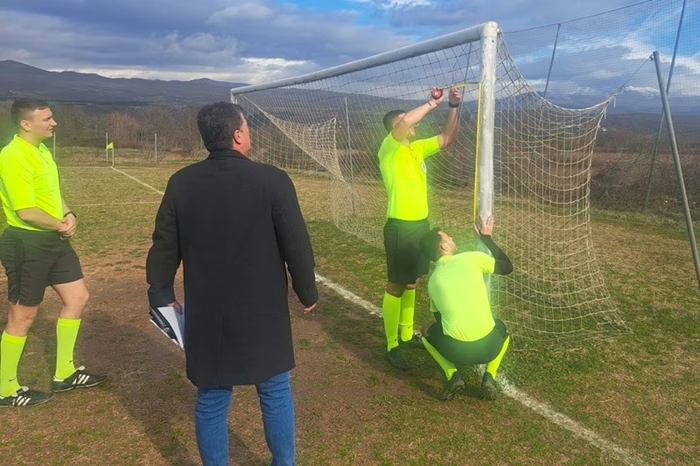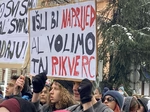
Prime Minister Andrej Plenkovic said on Saturday that Croatia, after joining the EU's borderless Schengen area on 1 January, would try to facilitate border cooperation with Bosnia and Herzegovina.
Oglas
Plenkovic made the statement in an address to the Croat People's Assembly (HNS) of Bosnia and Herzegovina, the Bosnian Croat political association, in the southern city of Mostar.
“Croatia will not build fences or walls or erect wire fences along the border with Bosnia and Herzegovina. We do not want the new Schengen borders of Croatia and the European Union to be a barrier or a fortress slowing the movement of people or goods between Croatia and Bosnia and Herzegovina,” the Croatian prime minister said.
He said that the ministers of the interior of the two countries have the task of facilitating and simplifying the cross-border movement of people and goods.
Plenkovic said that Croatia would continue to strongly support the Croats in Bosnia and Herzegovina and their projects, including those concerning health care, education and veterans’ rights. “You should know that Croatia is always behind you and with you,” he stressed.
After the meeting of the HNS, the umbrella organisation of Croat political parties in Bosnia and Herzegovina, Plenkovic took part in an informal lunch with the Chairwoman of the Council of Ministers of Bosnia and Herzegovina, Borjana Kristo. He announced her visit to Zagreb in mid-February as her first visit abroad.
At the 11th meeting of the HNS Dragan Covic was unanimously re-elected its President. Addressing the media, he said that the process of government formation in the country’s Federation entity would be completed soon, after which negotiations would follow on electoral and constitutional reforms to eliminate the possibility of Croats being outvoted by more numerous Bosniaks and prevent discrimination against minorities and other citizens.
The HNS adopted a declaration calling Bosnia and Herzegovina “the homeland of Croats in Bosnia and Herzegovina”. It called for Bosnia and Herzegovina to be organised as a federation and described Bosniak unitarism and Serb separatism as the biggest threat to the Croats and the state of Bosnia and Herzegovina.
The HNS condemned the Russian aggression against Ukraine and strongly supported the Euro-Atlantic integration of Bosnia and Herzegovina. It adopted a demographic strategy to reduce the outflow of Croats from the country and give them prospects for staying in Bosnia and Herzegovina.
Kakvo je tvoje mišljenje o ovome?
Učestvuj u diskusiji ili pročitaj komentare
Oglas
Kakvo je tvoje mišljenje o ovome?
Učestvuj u diskusiji ili pročitaj komentare
Oglas
NAJČITANIJE
Oglas
Oglas
Najnovije
Oglas
Oglas





 Srbija
Srbija
 Hrvatska
Hrvatska
 Slovenija
Slovenija



























































